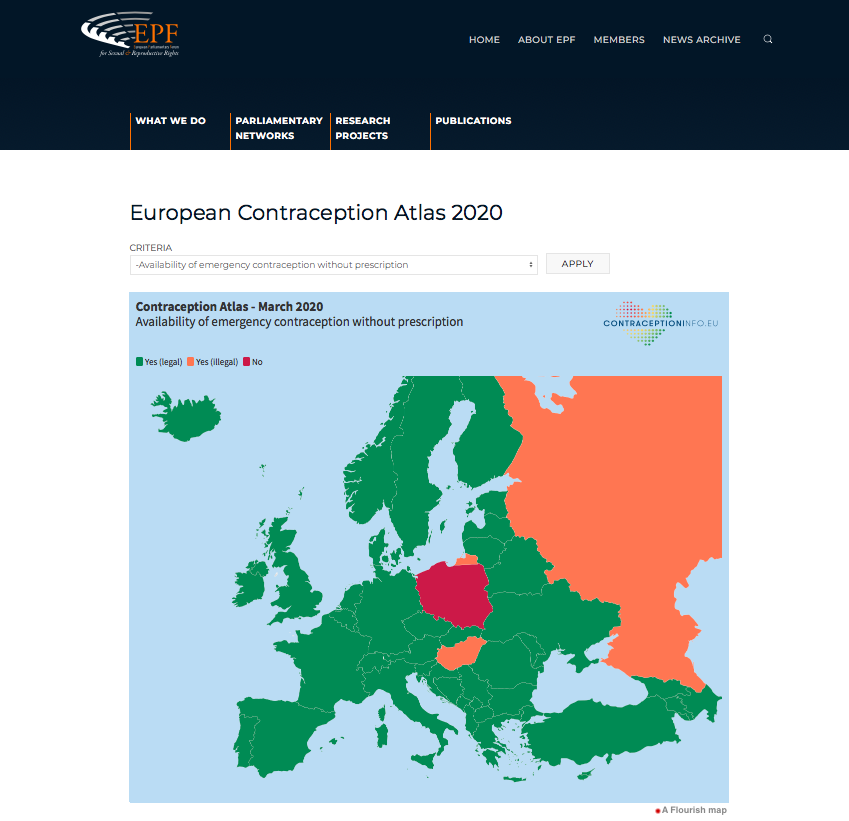European Contraception Policy Atlas 2020
 If you missed the on-line launch of the Atlas today, YouTube is here to help: https://youtu.be/5sT5mKS-UtI
If you missed the on-line launch of the Atlas today, YouTube is here to help: https://youtu.be/5sT5mKS-UtI  If you missed the on-line launch of the Atlas today, YouTube is here to help: https://youtu.be/5sT5mKS-UtI
If you missed the on-line launch of the Atlas today, YouTube is here to help: https://youtu.be/5sT5mKS-UtI As of June 2016, the mandatory dispensing protocol for UPA EC pills in Croatia has been cancelled. The dispensing protocol was developed by the Croatian Pharmacy Chamber, and its mandatory status was imposed by the Minister of Health in April 2015 following the European Medicine Agency’s (EMA) recommendation to sell UPA EC without a prescription….
June 2017. A new survey and a web discussion have provided new data about whether and how Italian women’s awareness of and access to EC has changed following the availability of UPA EC without a prescription in 2015. According to this data, 90% of the women consulted consider EC useful and 91% think it is effective; but on…
June 2020. The fourth edition of ICEC and FIGO’s Emergency Contraceptive Pills Medical and Service Delivery Guidance is now available in French. “Pilules contraceptives d’urgence. Directives médicales et de prestation de services”, originally published in English in December 2018, serves as a key reference and training document for service provision of EC. The French edition of this guidance…
January 2021. New brands of ulipristal acetate emergency contraception pills are becoming available in some European countries; as of January 2021 these can be found in Austria, Finland, France, Germany, Greece, Ireland, Italy, Netherlands, Norway, Poland, Portugal, Romania and Spain. Visit the Country by country section of our website for more details on specific brands…
The International Consortium for Emergency Contraception shared an updated summary of studies on the theme of safety of EC pills in ongoing pregnancies. We hope you find it useful for your work. “Evidence continues to accrue confirming that emergency contraceptive pills (ECPs) do not harm a developing fetus if they are mistakenly taken early in an…
October 2024. The Central Drugs Standard Control Organization (CDSCO) clarified that emergency contraception pills (ECPs) will remain accessible without prescription in India, and that misinterpretations have led to confusion about prescription requirements for certain hormonal contraceptives. Read more here. In past few weeks, some news reported that a ban on over-the-counter sales of ECPs was…
Menú